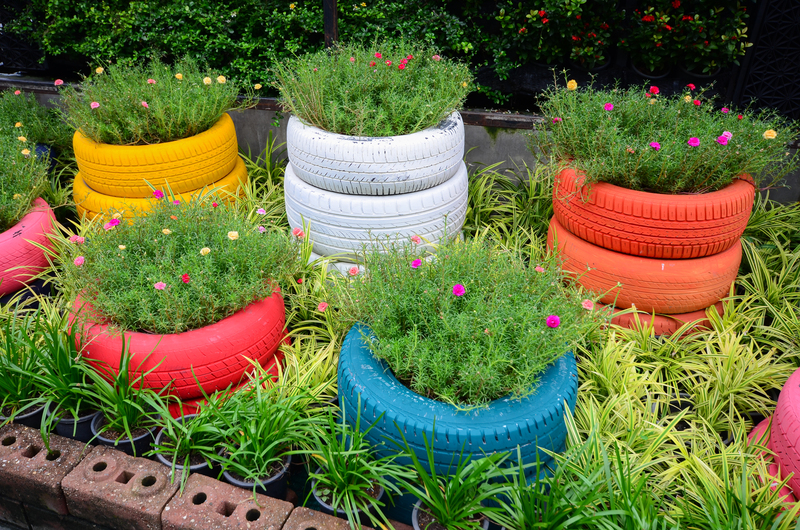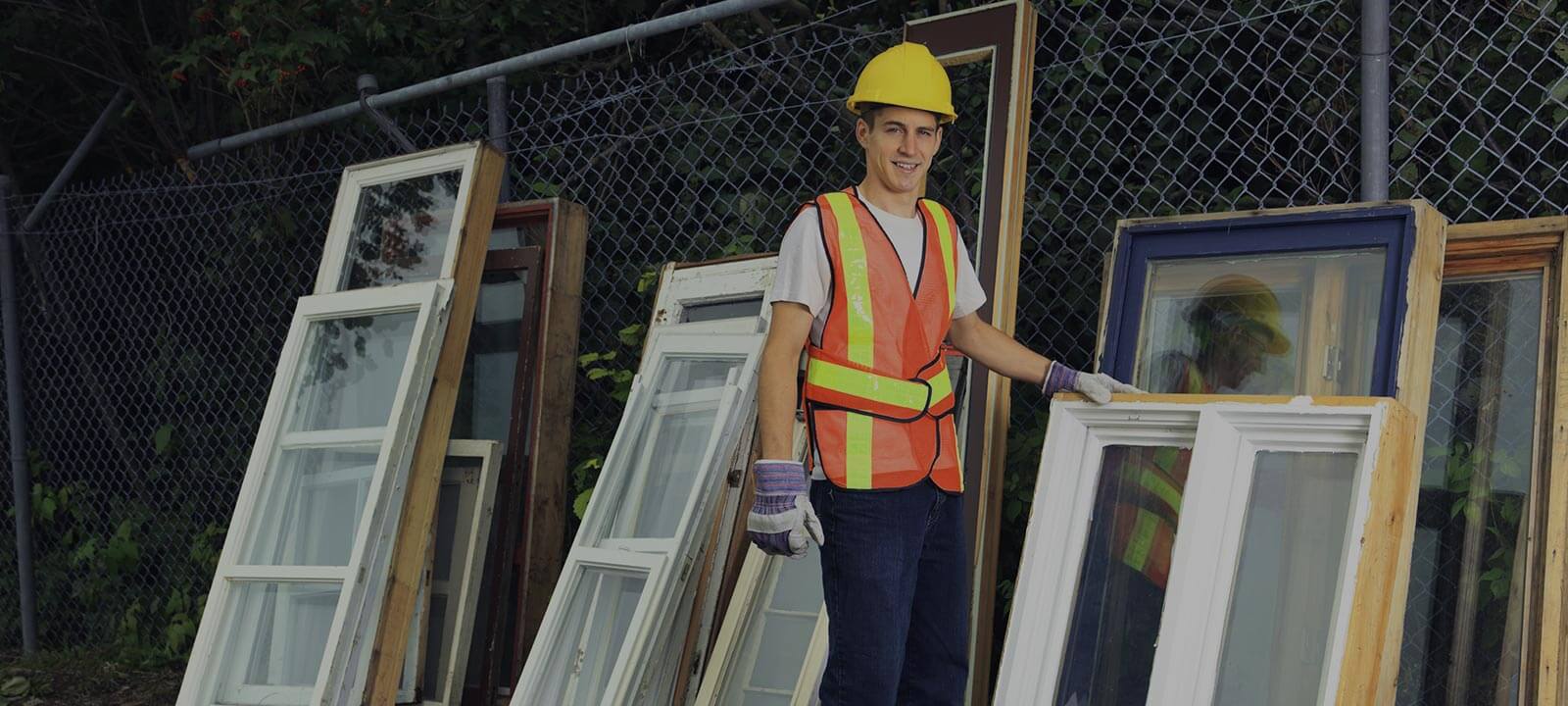Green Waste Disposal: Avoiding the Landfill
Posted on 25/10/2024
As environmental concerns become more pressing, proper disposal of green waste takes center stage in our battle against climate change and resource depletion. Green waste, which includes plant-based materials like grass clippings, branches, leaves, and organic kitchen waste, represents a significant portion of the overall waste generated worldwide. Unfortunately, much of this waste still ends up in landfills, exacerbating greenhouse gas emissions and wasting potentially valuable resources. This article explores effective methods for green waste disposal, focusing on how we can minimize landfill accumulation.
Understanding Green Waste
Green waste, also known as organic or biodegradable waste, comprises various plant and garden refuse. This includes:
- Grass clippings
- Tree branches and twigs
- Leaves
- Garden weeds
- Vegetable and fruit scraps
- Wood chips
Green waste is typically high in nitrogen and moisture content, which distinguishes it from other types of yard waste like soil or stones. When disposed of incorrectly, it can contribute significantly to methane emissions due to anaerobic decomposition in landfill conditions.

The Problem with Landfill Disposal
Landfills are a common destination for various waste types, including green waste. However, disposing of green waste in landfills poses several problems:
- Greenhouse Gas Emissions: In the anaerobic (oxygen-free) environment of landfills, green waste decomposes into methane, a potent greenhouse gas that has a much higher warming potential than carbon dioxide.
- Wasted Resources: Green waste contains valuable nutrients that can be recycled back into the soil. When landfilled, these nutrients are lost, necessitating the use of artificial fertilizers that further harm the environment.
- Space Limitations: Landfills are reaching capacity limits in many parts of the world. Diverting green waste can significantly extend the lifespan of existing landfills and reduce the need for new ones.
Beneficial Alternatives for Green Waste Disposal
To avoid the detrimental impacts of landfill disposal, it's essential to embrace alternative, more sustainable methods for green waste management. Here are some viable options:
Composting
Composting is a natural recycling process that turns organic materials into valuable compost. It involves the aerobic (oxygen-based) decomposition of green waste, producing a nutrient-rich soil amendment.
Benefits of Composting:
- Reduces landfill waste
- Decreases greenhouse gas emissions
- Creates a valuable product for soil enrichment
- Supports water retention in soil
How to Compost Effectively:
- Maintain a balance of green (nitrogen-rich) and brown (carbon-rich) materials
- Ensure adequate aeration by regularly turning the compost pile
- Monitor moisture levels to keep the pile damp, not wet
- Avoid adding meats, dairy, and diseased plants to the compost
Aerobic Digestion
Aerobic digestion is another method for decomposing organic waste but on a larger, more systematic scale compared to household composting. This process uses microorganisms to break down organic materials in the presence of oxygen, resulting in compost or soil conditioners, and water. It's especially useful for communities and industries with substantial green waste production.
Vermiculture
Vermiculture, or worm composting, employs worms to break down organic waste into vermicompost, a high-quality soil additive rich in essential nutrients.
Benefits of Vermiculture:
- Produces a superior quality compost
- Reduces waste volume significantly
- Can be done in compact spaces, suitable for urban settings
How to Start Vermiculture:
- Set up a worm bin with appropriate bedding (like shredded newspaper or coco coir)
- Add red worms (Lumbricus rubellus or Eisenia fetida) to the bin
- Feed the worms vegetable scraps, fruit peels, coffee grounds, etc.
- Regularly harvest the worm castings (vermicompost) for use in gardening
Mulching
Mulching involves spreading green waste like grass clippings or shredded leaves directly on the soil surface. This can help retain moisture, regulate soil temperature, and prevent weed growth. Over time, this mulch breaks down, enriching the soil with organic matter.
Benefits of Mulching:
- Improves soil health and structure
- Reduces the need for chemical fertilizers and herbicides
- Helps conserve water by reducing evaporation
Green Waste Collection Services
Many municipalities and private companies offer green waste collection services. These services often involve separate bins for organic refuse, which are then transported to composting facilities, green waste recycling centers, or other designated processing locations.
Advantages of Green Waste Collection Services:
- Convenient and easy for households and businesses
- Ensures green waste is disposed of responsibly
- Reduces contamination of recyclable materials
It's crucial for residents to familiarize themselves with local guidelines and requirements for green waste collection, as improper sorting can jeopardize the effectiveness of these programs.
Innovative Technologies for Green Waste Management
Advances in technology continue to provide innovative solutions for managing green waste more efficiently:
Bioenergy Production
Green waste can be used in anaerobic digesters to produce biogas, a renewable energy source. This process captures methane that would otherwise be released into the atmosphere, converting it into electricity, heat, or vehicle fuel.
Biochar Production
Biochar is a form of charcoal produced from organic waste through pyrolysis. When added to soil, it can enhance nutrient retention, improve water holding capacity, and sequester carbon for long periods.

Community Initiatives and Education
Community involvement and education play a crucial role in successful green waste management. Local governments, environmental organizations, and community groups can drive initiatives that foster awareness and encourage participation in sustainable practices:
Workshops and Trainings
Conducting workshops and training sessions on composting, vermiculture, and mulching can empower residents to manage green waste efficiently in their own backyards.
Publicity Campaigns
Publicity campaigns can spread awareness about the benefits of proper green waste disposal and existing programs, inspiring more people to participate.
Conclusion
Green waste disposal is a significant environmental concern that demands concerted efforts from individuals, communities, and governments. By adopting sustainable practices such as composting, vermiculture, mulching, utilizing green waste collection services, and leveraging new technologies, we can substantially reduce the volume of green waste in landfills. Educating and engaging communities can drive a collective effort to manage green waste effectively, turning what was once considered waste into valuable resources that benefit the environment.
The proper disposal of green waste is not just a necessity but an opportunity to contribute to a more sustainable and resilient future. By taking proactive measures, we can protect our planet for future generations and lessen our impact on the environment.










